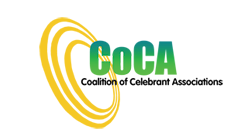In this submission, CoCA is commenting in relation to the Marriage Act 1961, particularly as it was recent changes to the Marriage Act that prompted the need to examine the “intersections between the enjoyment of the freedom of religion and other human rights” in relation to the changes in the definition of marriage to enable same sex couples to marry.
CoCA took a neutral position as regards Marriage Equality 1, considering this to be the responsibility of Australia’s parliamentary system to resolve.
The rationale for the creation of Subdivision D (i.e. Commonwealth regulated independent religious marriage celebrants) as distinct from Subdivision C (i.e. Commonwealth regulated independent civil marriage celebrants) was to ensure there would be transparency for the Australian marrying public i.e. the couple would know what type of marriage celebrant they were potentially engaging, and as a consequence whether there could be additional requirements made of them (Section 472) and if they were a same sex couple, whether they could be refused a marriage ceremony on the basis of religious belief.
This CoCA recommendation also was based on the principle that, because the Marriage Act is a Commonwealth law, all Subdivisions and Divisions of marriage celebrants perform a “public trust under the Commonwealth” under the Section 116 of the Australian Constitution 3 which states:
“The Commonwealth shall not make any law for establishing any religion, or for imposing any religious observance, or for prohibiting the free exercise of any religion, and no religious test shall be required as a qualification for any office or public trust under the Commonwealth.”
CoCA is of the opinion that Australia’s Marriage Act does grant the enjoyment of the freedom of religion to those people in Australia who have religious beliefs.
This is evidenced by the fact that over 70% of all Division 1 Authorised marriage celebrants4 are marriage celebrants for religious organisations or Recognised Religions.
CoCA however considers that there are a number of areas where the Marriage Act 1961 could be amended in order to benefit the religious and human rights of all marrying couples and of all marriage celebrants.
CoCA therefore makes a number of recommendations for consideration by the Expert Panel in order to achieve greater equality for all marrying couples and greater parity between the different groups of marriage celebrants.


